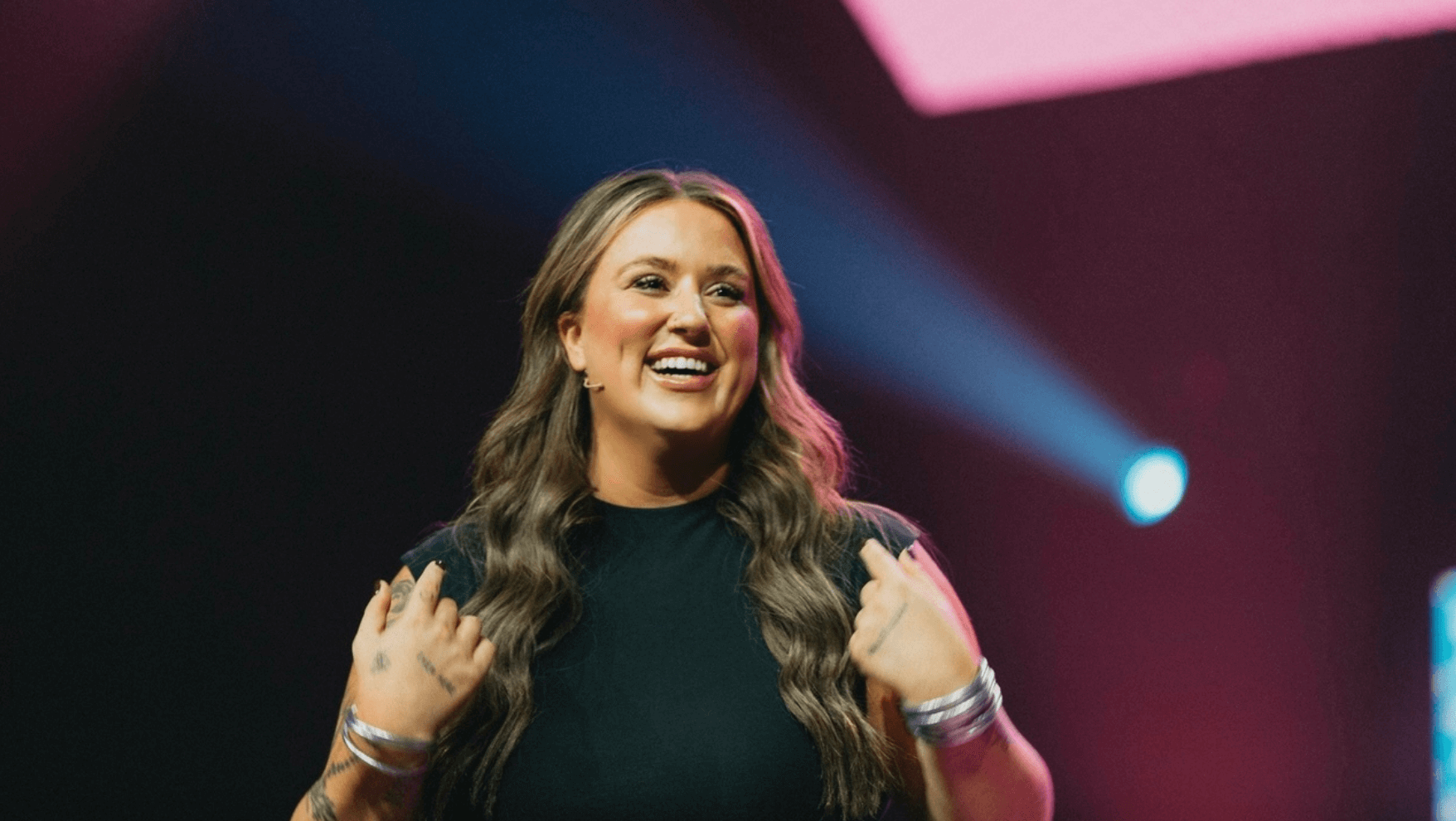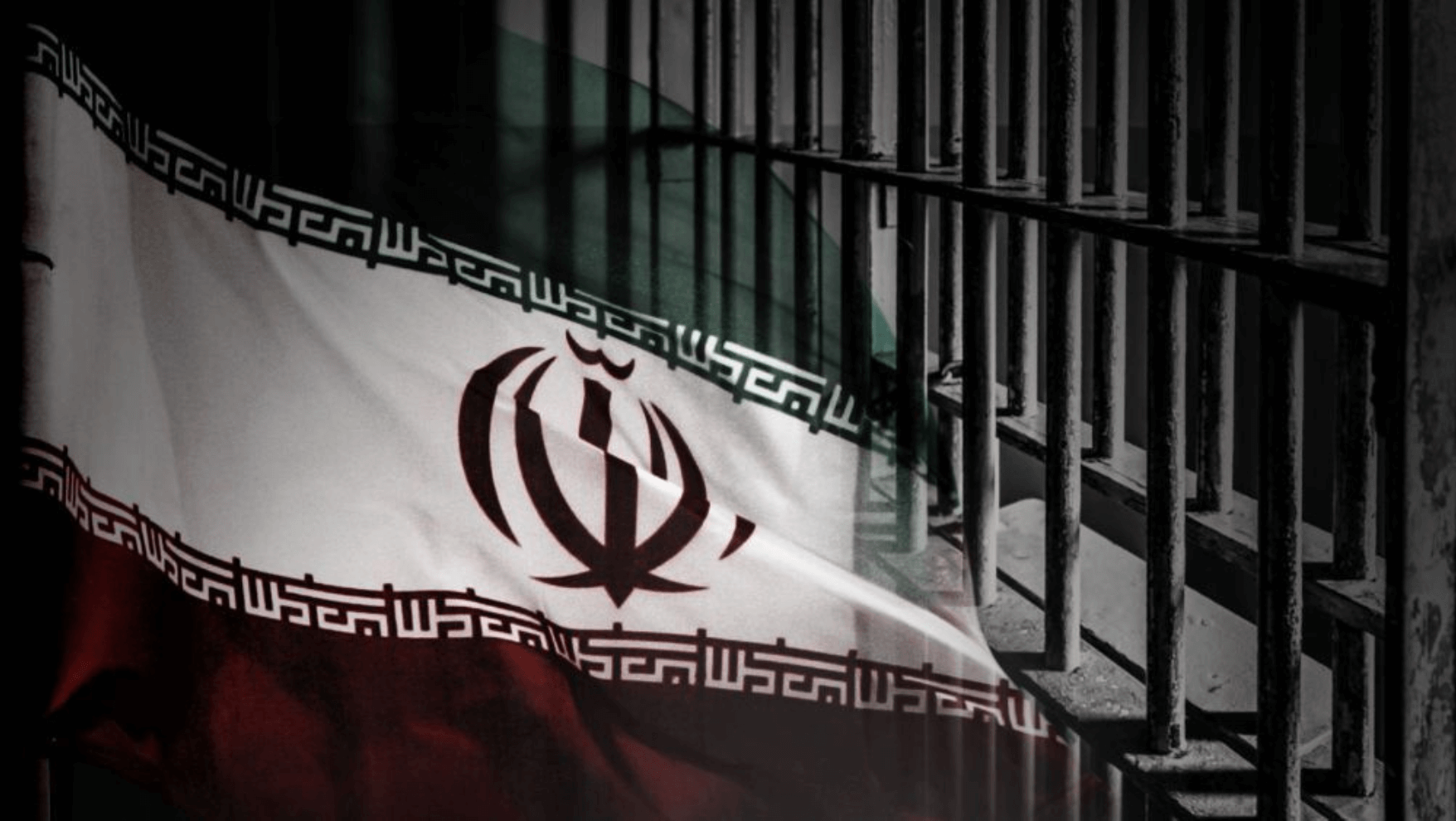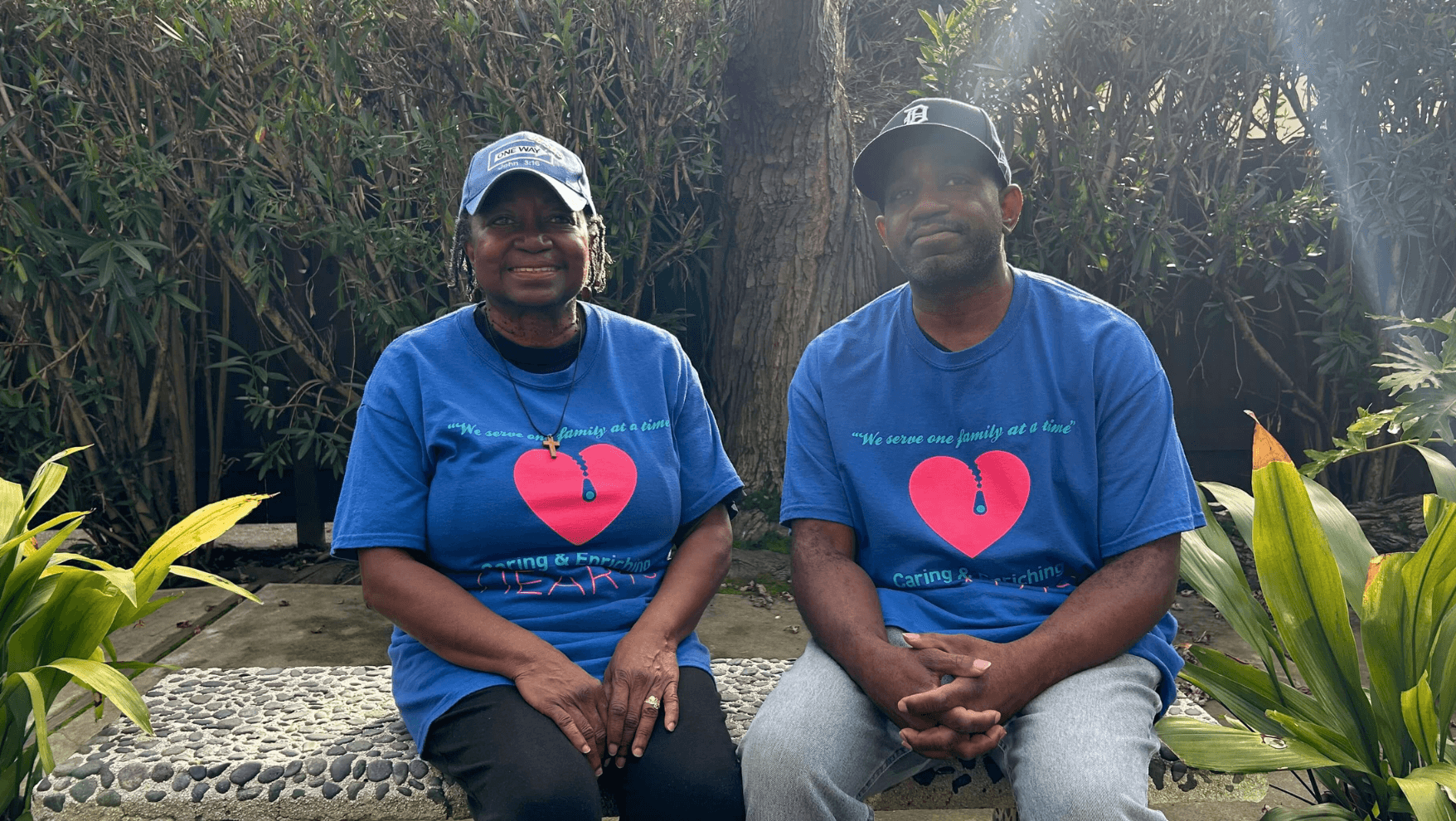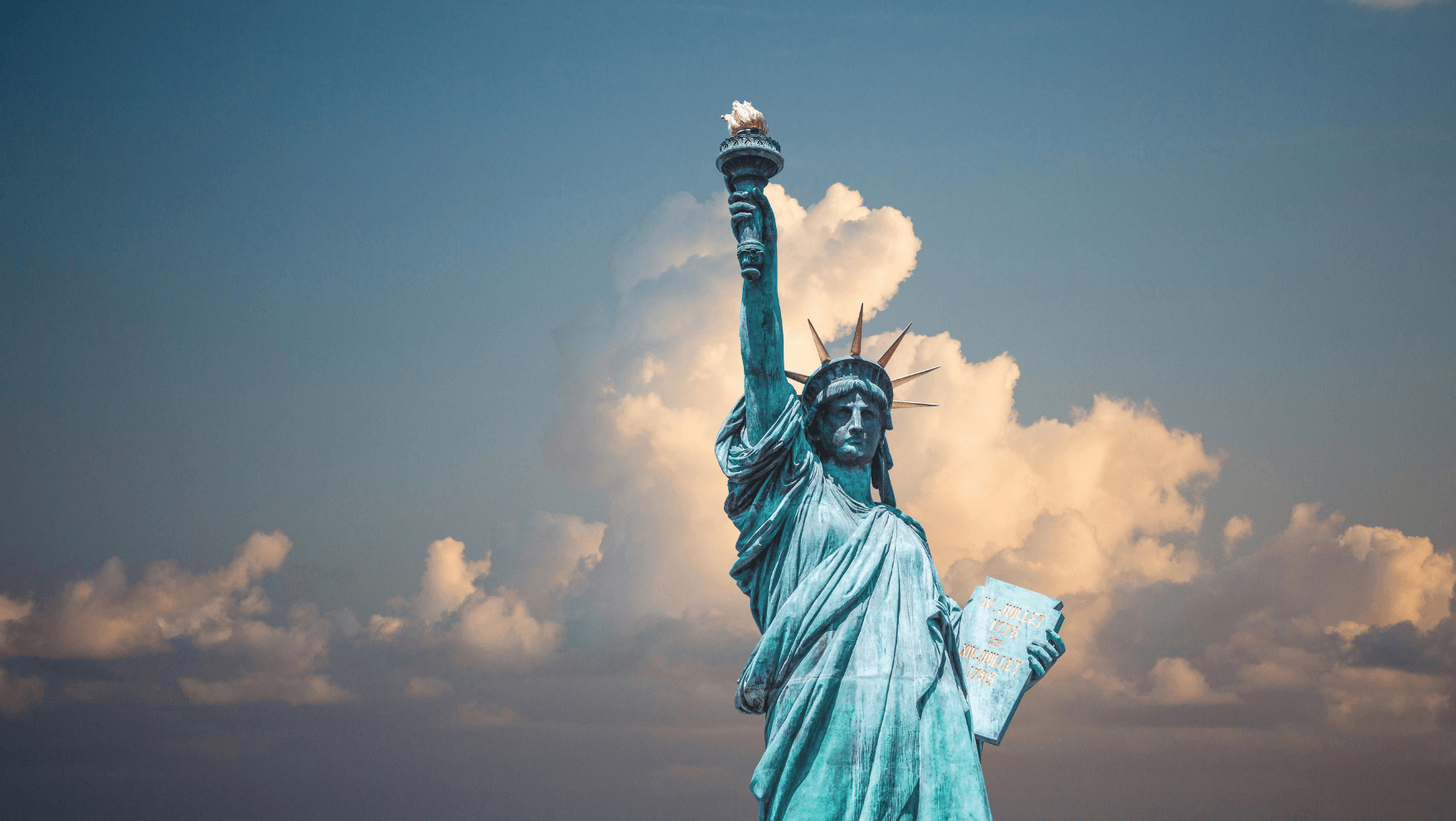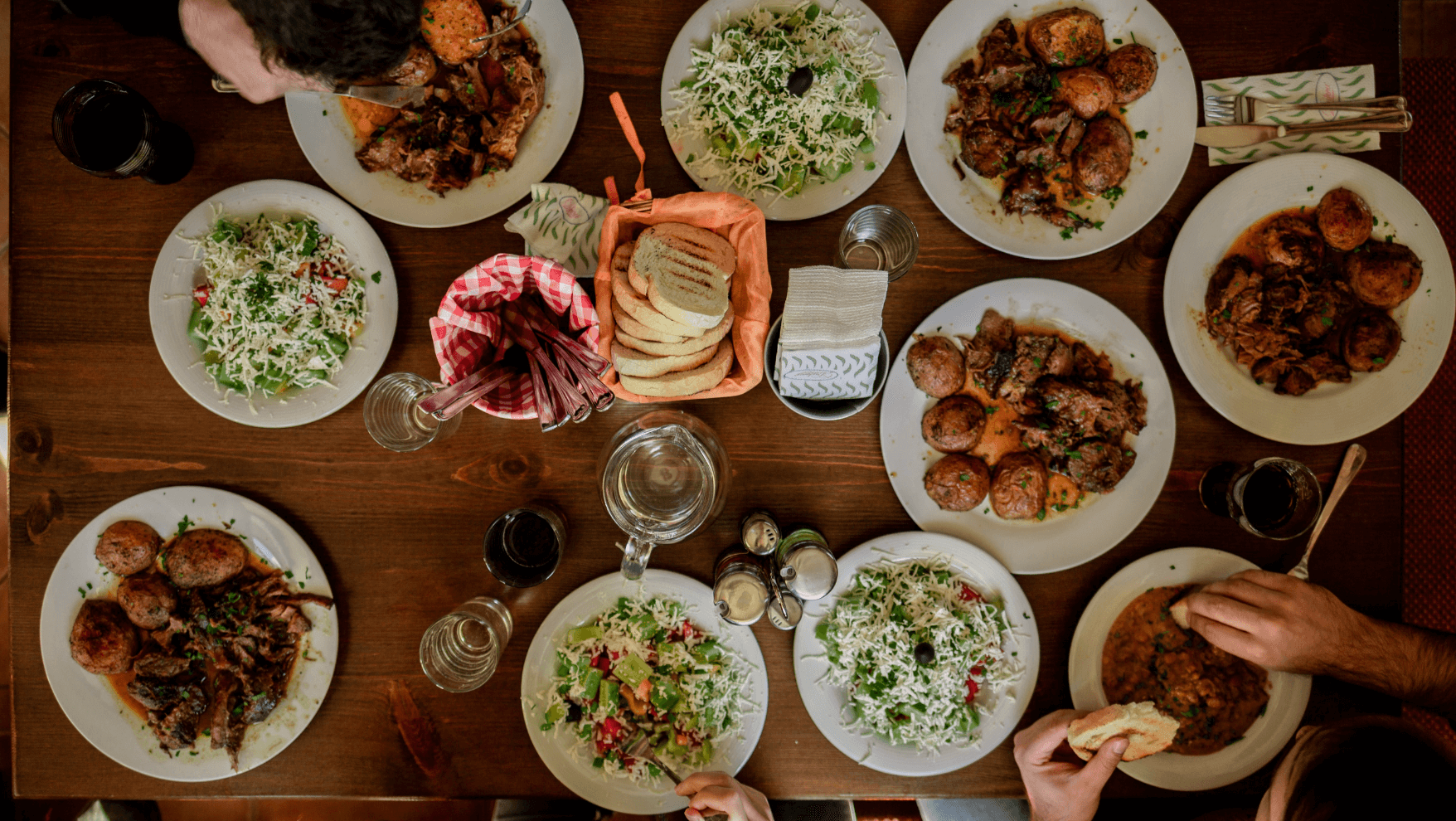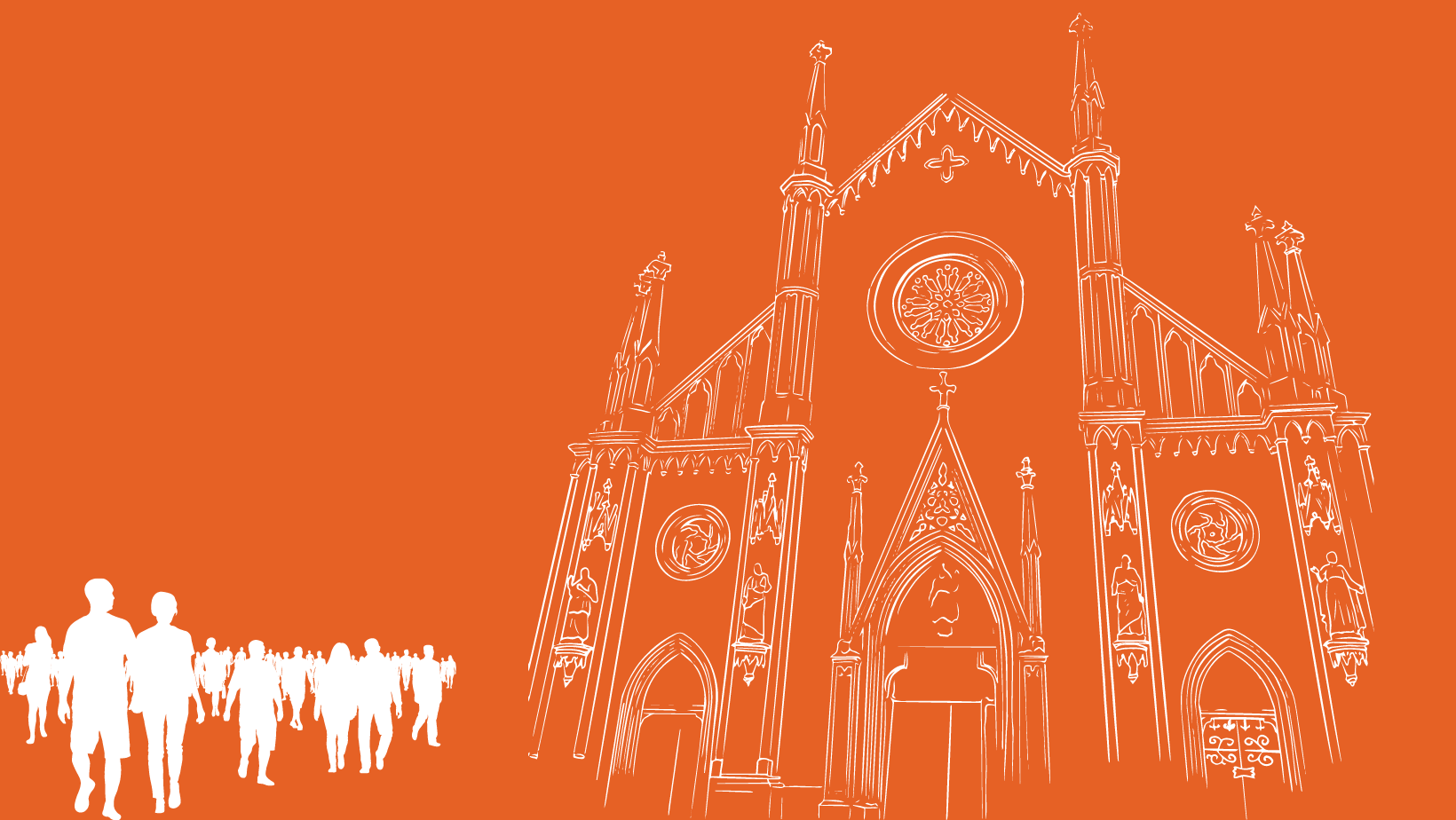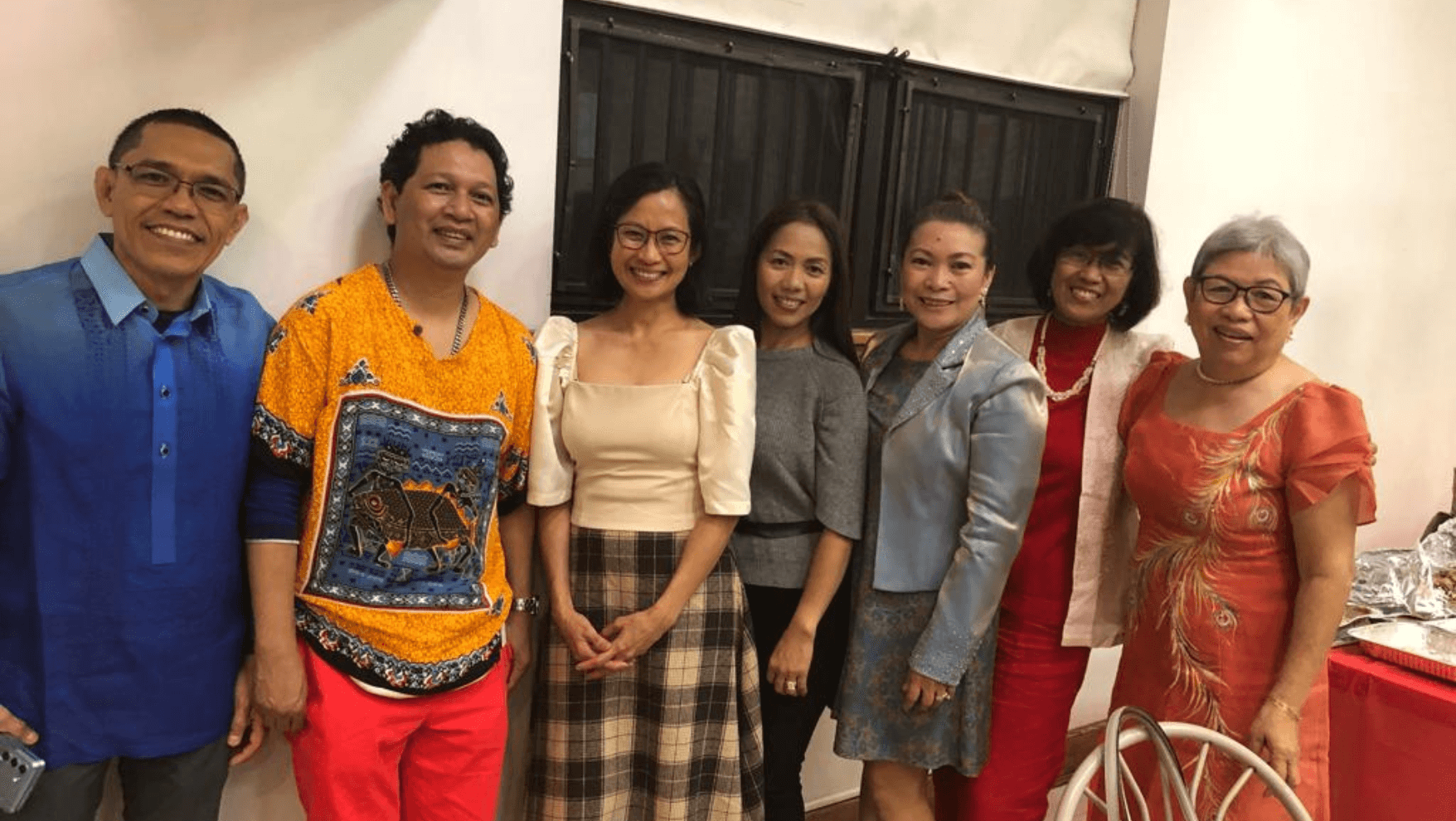
Members of First Baptist Church of Flushing, New York at their International Dinner. Photos by Gary Domiano for First Baptist Church
Flags line the room, smells of spices and curries fill the air and some members come clothed in their national dress. This congregation enjoys all the gifts of each member’s culture together.
This scene is of an international dinner at First Baptist Church in Flushing, New York, where Gary Domiano serves as the executive pastor. He described these dinners as a picture of the diversity at FBC Flushing. The church also holds services in Spanish, Chinese and English.
The Church mirrors the community of Flushing, one of the most diverse areas of New York City, Domiano said.
“We have upwards of 100 different languages spoken, and we have over 60 nations represented just in the immediate community of the church,” Domiano said. “To remain as a homogeneous church, whether it's white or Black or Hispanic or Chinese or Korean, that church would not reflect the community where we exist.”
Even within each service, the members cover wide swaths of the world, from China to Korea, and Jamaica to Europe, Domiano said.
The colorful map of cultural diversity that surrounds FBC Flushing’s staid, brown brick building reflects growing trends in America. No ethnic group dominates the population of people under the age of 18, according to the U.S. Census Bureau.
The United States continues to diversify, and with it, churches like FBC Flushing respond.
FBC Flushing started in 1857, and up until the early 70’s, Domiano said the church remained a mostly white congregation. However, a Chinese and Spanish Bible study also met at the church.
When a new pastor joined the church in 1978, he decided to elevate those Bible studies to their own services and incorporated diversity in the leadership team as well, Domiano said. He also added that even if churches in New York offered multi-lingual services, they often relegated one congregation to “second place.”
“Real diversity is every believer, regardless of who they are, what they look like, where they come from and how much money they earn, they are on equal footing before God,” Domiano said. “And we treat everyone that way.”
At FBC Flushing, Domiano said they do not just accept diversity; they celebrate it. They hold international dinners at their mission conference.

FBC Flushing’s International Dinner in October 2023.
“When we come together, it gives us a richer worship, a richer spirituality and a deeper understanding of Scripture,” Domiano said. “We don't simply look at Scripture through the eyes of a Westerner or a white European, when most of the Bible is not written from Europe as much as from the Middle East and beyond.”
However, when other cultural perspectives add filters to people’s worldview lenses, it can be disorienting, Domiano said. He offered examples of when deeply held preferences rose, as if threatened, and said it can be difficult to unite the body of Christ when it looks so different.
“One of the English leaders was so upset over some misspellings in the bulletin, and I just didn't see it that way,” Domiano said. “It didn't bother me because the person who put the bulletin together was born and raised in Hong Kong.”
When everyone sees things differently, it can be hard to follow the pattern of forbearance taught in passages like Colossians 3.
“It is very easy to be in a church where everybody is just like you,” Domiano said.
He also emphasized that diversity is not simply defined by language or skin color. It is also defined by the number of zeros in one’s bank account.
“It's not uncommon if you're in New York and you're working on Wall Street or at Fortune 500 companies to see a black man and a white man having lunch together,” Domiano said. “What you don't always see in the world would be a wealthy black man and a very poor white man. So, diversity has to go in each direction.”
Domiano said he benefits from a diverse church staff. Their different perspectives present opportunities to bear with his leadership team as he attunes to their cultural needs.

FBC Flushing’s Staff at a recent dinner.
“In the Chinese context, they work a lot by consensus,” Domiano said. “An American, you might just want a simple majority. The Spanish leaders speak with a lot more emotion. The Chinese leaders are more quiet, and they will defer to the older Chinese leader on the team. So, as a senior pastor, I have to work with them so as not to come at them the way I might normally come at them.”
Diversity, while fruitful for ministry, is not easy, Domiano said.
“I know a lot of people who want to do it,” Domiano said. “They like the idea of it. They've read books on it. For pastors who want to do it and want their churches to become that way, they have to be prepared for a lot of pushback and a lot of disappointment.”
Ultimately, it comes down to the simple fruits of the spirit, Domiano said.
“Love, sacrifice, humility,” Domiano said. “Those are the virtues that make the multiethnic church work.”
Domiano opens up his Bible and shares what God’s kingdom may hold, calling believers to be in the likeness of worship in heaven.
“John, in his vision, sees people from every tribe, nation, people and language worshiping,” said Domiano. “So, if the worship in heaven is going to be diverse across every language, culture, color, everything, the Church on Earth should reflect what's going to be happening in heaven for all eternity.”
Margaret Fipps is a junior Journalism student at Cedarville University and the editor-in-chief of Cedars Magazine. As a journalist, she wants to revive beautiful writing with a purpose: to engage communities in conversations with each other. As a former pastor's kid, she deeply cares for the Church and loves seeing Jesus proclaimed through his bride.






